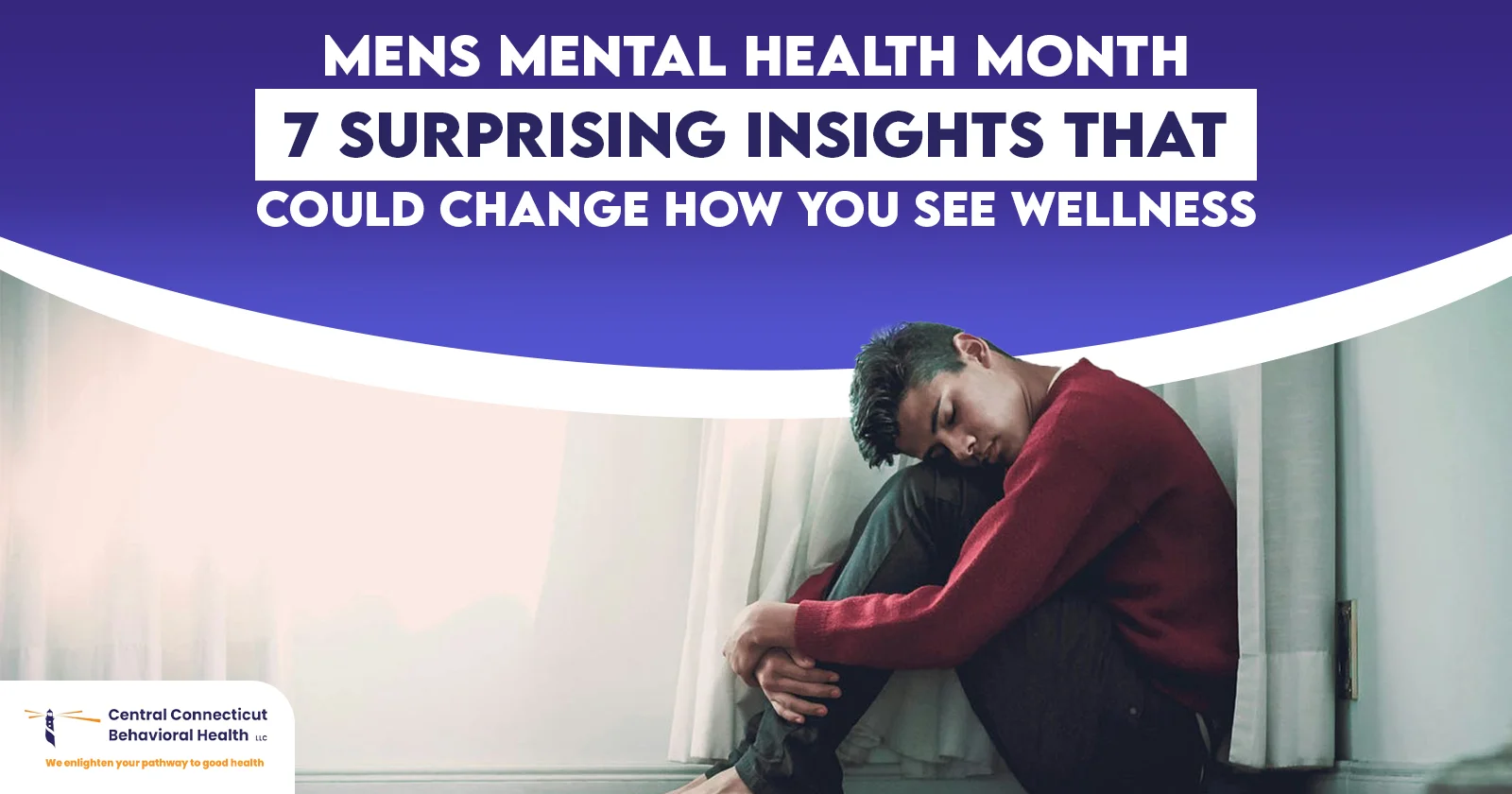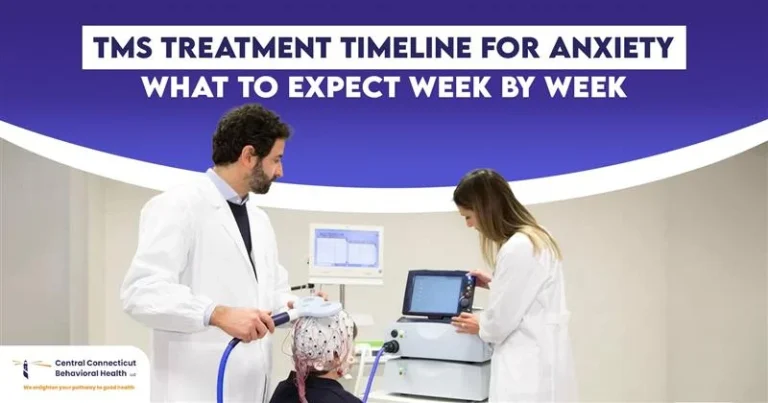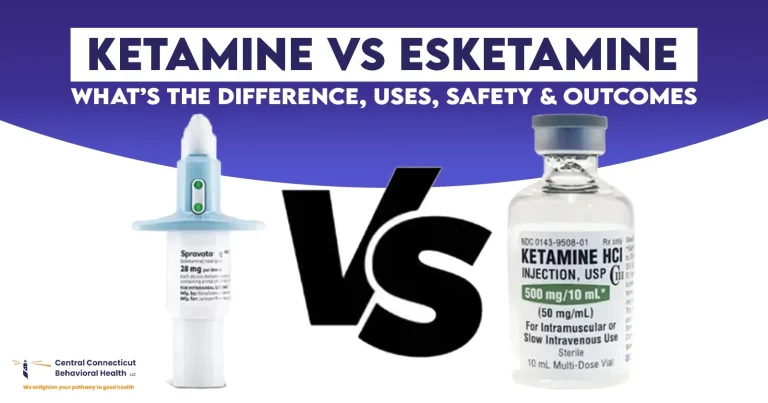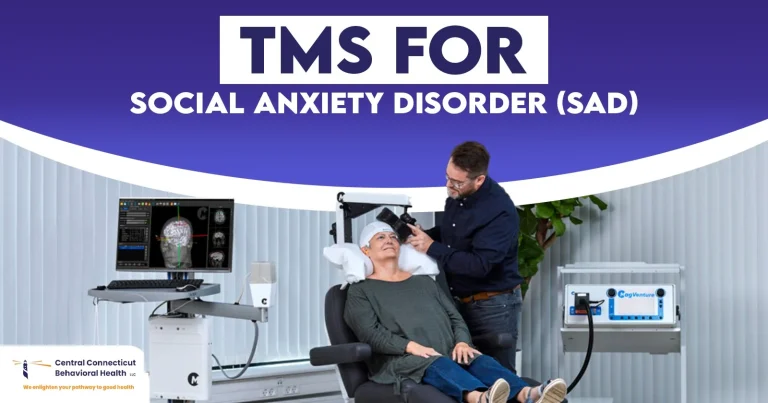When we are referring to mental health, we may think of a more generic discourse of the issues under which people are suffering. However, there remains a single place, which is not normally addressed or discussed as much, and that is the mental health of men. Men’s Mental Health Month is a worthwhile event annually since it illuminates the unique problems that men suffer in maintaining their mental health.
Stigmatization often affects men when addressing mental health issues, be it social expectations or emotionally, inhibiting inhibited. These barriers can be overcome through raising awareness and understanding, though.
This blog will discuss seven mind-blowing facts in men’s mental health and present thoughts on how to celebrate Men’s Mental Health Month in substantial ways.
Is June Men’s Mental Health Month?
Yes, the month of June is called Men’s Mental Health Month, a month of awareness-raising on mental problems that men experience. This month helps in creating a breakthrough in the silence on mental health among men, and makes men open to supportive services, as well as share their feelings without fear of being judged. The society is compelling most men to appear strong and controlling, and this is why most men are mutely suffering, and this month is the right one to change the game.
A campaign that is targeted at addressing the stigma surrounding mental health is Men’s Mental Health Awareness Month, which focuses on the issue of the necessity to have their mental status taken care of by men. It serves as a reminder that mental health fights are not an isolated case and that men need not be ashamed to ask.
7 Surprising Insights about Men’s Mental Health
-
Men Are Less Likely to Seek Help for Mental Health Issues
Among the most shocking facts concerning the mental health of men, the unwillingness of men to seek assistance when struggling with emotional or mental issues should be mentioned. The culture of society usually predetermines that men are supposed to tough it out and be stoic when faced with a tragedy. Such a belief may make men not seek help, be it in the form of a therapist, friend, or even medical treatment.
According to the statistics, men are more afraid to discuss their feelings or understand that something is wrong with their mental state. The resultant effect is a greater probability of untreated mental disorders like depression and anxiety that can worsen over time. Furthermore, men would usually adopt other coping mechanisms that are unhealthy, like substance abuse, anger, or isolation. Mental health month of men: How to celebrate it:
- Promote free discussions within workplaces and communities to popularize mental health issues among men.
- Provide secure places where men can talk about their feelings, either in social groups or in counseling.
-
Depression in Men Often Looks Different Than in Women
Depression is mostly perceived as being sad, but in men, it may be otherwise. Although the feelings of sadness and low mood are common to both men and women, men can be irritated, angry, take risks, and withdraw. Male depression may easily be confused with aggression or frustration, hence a wrong diagnosis or even neglect of the true problem.
Other men might not be aware that they are depressed, as they might believe that they are just angry and annoyed. This explains why it is important to learn various emotional expressions to diagnose and cure mental illnesses in men.
The ways to celebrate the month of Mental Health of Men:
- To create awareness regarding the possible difference in the manifestation of depression in men and the significance of these signs.
- Get men into the habit of monitoring their emotional well-being even when they seem fine on the outside.
-
Suicide Rates Are Higher Among Men
Among the most shocking and tragic figures of the Men’s Mental Health month, one can single out the fact that the risk of a man committing suicide is much higher than that of a woman. According to Categories CDC, in the United States, men are the ones who commit approximately 75% of all suicides, when in fact, women are the ones who attempt suicide at higher rates. This disparity can be explained by the fact that men are not ready to find some help and demand that society members are powerful and at the top at any price.
Most men have a high rate of thinking that they cannot be able to discuss their hardships as they fear being perceived as weak. The worsened mental health can be severe enough by the time they get to the point of suicidal ideation because of the social isolation and lack of support.
The most effective celebration of Men’s Mental Health Month:
- Invest in mental health organizations and suicide intervention among men.
- Help men feel comfortable asking to be assisted when they require it, and it can be by calling a helpline or by spending time with a therapist or a loved one.
-
Physical Health and Mental Health Are Strongly Linked
Mental health does not receive much seriousness because it is closely related to the physical well-being of men. There may be physical health problems and vice versa due to poor mental health and poor physical health. It is also more so that the symptoms of mental health problems that will include depression, anxiety, and may lead to many physical disorders, including headache, digestive problems, and even heart problems, would be ignored or rather rejected by men.
On the other hand, the state of the mind may also be negatively influenced by physical diseases, e.g., chronic disease, trauma, or weight issues. Therefore, wellness should be approached and taken as a holistic process, and physical and mental health.
The celebration of men’s mental health can take the following form:
- Physical exercises and activities should be promoted, as well as good lifestyles, to improve physical and mental well-being.
- Prefer periodic check-ups and screening to solve psychological and physiological issues.
-
Men Are More Likely to Experience PTSD
Most people would associate post-traumatic stress disorder (PTSD) with combat veterans, but any other person can develop the same as long as he or she has undergone some form of trauma. Indeed, men are more likely to experience PTSD due to their tendency to engage in high-risk behaviors/work, e.g., law enforcement, army work, and construction.
In addition, men tend to repress the feelings associated with the trauma to a greater extent, and this is capable of worsening the problem with mental health connected to PTSD. Treatment of PTSD can be grounded in therapy, mindfulness, or medicine, and men must be aware of when they may be experiencing complications of symptoms of trauma.
-
Social Media Is Contributing to Mental Health Struggles in Men
Social media has become a two-sided sword in the modern world. On the one hand, it can unite and create support circles. On the other hand, it can strengthen the feeling of solitude, being inferior, and being anxious.
Men, and the younger in particular, feel the pressure to be more successful, more attractive, and masculine based on unrealistic expectations of success, appearance, and masculinity as these are popularly displayed on social media.
This comparison may have many negative impacts on self-esteem and may lead to the creation of a skewed mental health image. Research has established that men who are massively affected by social media report having more anxiety and depression.
The way to celebrate the Mental Health Month of Men:
- Encourage healthy use of social media and take a break from social media.
- Help men build natural, affirming relationships online and offline.
-
Men’s Mental Health Month Is a Global Movement
Although most countries in the world celebrate Men’s Mental Health Month during June, it is a global event. The campaign has achieved some progress in eliminating the stigma of mental health problems among men in different cultures. When men’s mental health awareness becomes a world movement, we will have a greater chance of giving men the opportunity they deserve to receive the type of support they require wherever they are.
How to celebrate Mental Health Month in Men:
- Fund local mental health organizations that support men, including The November Foundation or Heads Together.
- Create awareness in communities on the significance of mental health in men and promote men’s health services in all continents of the globe.
Closing Remarks
The matter of men and mental health is quite a burning one that should be discussed throughout the year-long. During Men’s Mental Health Month, men can use this period to create awareness, educate the men in our lives, and give them a platform where mental illnesses are no longer a secretive affair but where they can be brought out in the open and handled with the seriousness they deserve.
At Central Connecticut Behavioral Health, we are adamant in ensuring that mental health is the priority resource and services accessible to men, in the bid to eliminate the stigma that comes with mental health struggles.
Together, we can collaborate and make sure that the men receive the support and care they deserve, not only in the month but in our day-to-day cases as well.
FAQs: Men’s Mental Health Month
When Is Men’s Mental Health Month?
Every year, Men’s Mental Health Month is held in June. This month, there is also awareness creation about the specific mental health challenges that men encounter and the need to seek help.
What can I do to promote Men’s Mental Health in the workplace?
Men’s mental health month at work can be observed when organizing wellness initiatives, fostering open dialogue about mental health, and providing information about stress management and mental health. Support systems should also be provided to the employees to seek confidential assistance in case of need.
What are some of the thoughts on Mental Health Month in men?
The following are some of the ideas that would be used to promote mental health in Men’s Mental Health Month:
- Hosting the mental health workshops or talks.
- Giving resources and self-care advice to allow men to cope with stress.
- Bonus: organizing physical exercises or outdoor games to promote physical fitness.
What are the most important statistics of men’s mental health?
Key statistics include:
- Male individuals are three times as likely to practice suicide as females.
- Men are less willing to seek assistance for mental health problems.
- Mental illnesses in men may take various forms, such as irritability and aggression.














